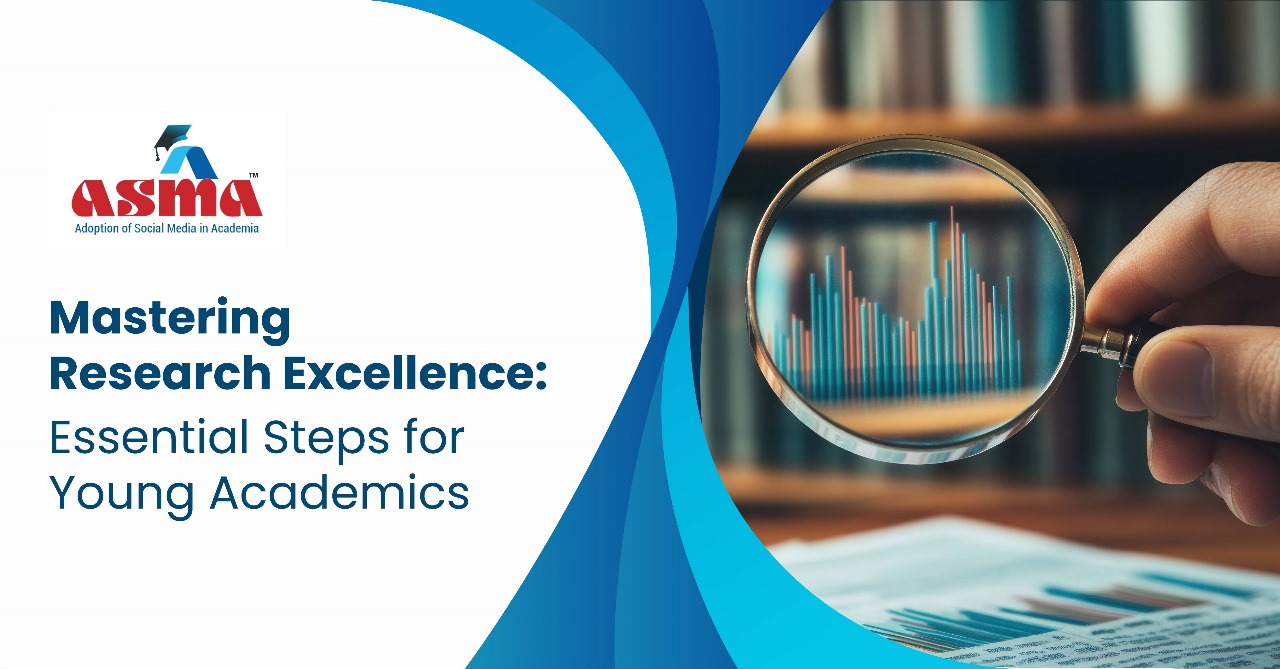Mastering Research Excellence: Essential Steps for Young Academics
How to Choose the Right Research Theme for Maximum Impact
Introduction
Achieving research excellence is a goal that every emerging academic strives for. But what if 50% of your success depended on one crucial decision? According to our speaker, it does. Selecting the right research theme is the cornerstone of impactful research, especially for young scholars. In this blog, we’ll cover key strategies for choosing the best research topics, conducting an effective literature review, and ensuring your work adds value to society.
Watch the full video for more insights: https://youtu.be/_cTenG9KoL8
Why Choosing the Right Research Theme Is Essential for Young Academics
Choosing a research theme isn’t just a step in the process; it’s the most vital decision a researcher can make. The speaker emphasizes that 50% of your research success depends on selecting the right topic. By focusing on research excellence for young scholars, this first critical step sets the stage for the entire project.
To succeed, young researchers need to ensure that their chosen topic not only aligns with personal interests but also addresses societal relevance. Whether the research is theoretical or practical, its potential impact on the academic world and society at large must be considered. In India, organizations like the University Grants Commission (UGC) emphasize the importance of selecting research themes that are both relevant and innovative, helping contribute to national development.
Key Steps to Choosing a Research Theme in 2024
-
Identify Your Passion and Interests:
The speaker stresses that passion is a significant driver for academic success. As a young scholar, start by identifying topics that excite you. The more aligned your theme is with your interests, the more motivated you’ll be to push through challenges. For example, researchers can refer to the Shodhganga – INFLIBNET repository to explore previously submitted dissertations and identify unique research gaps.
-
Ensure Societal Relevance:
In 2024, choosing impactful research topics is more important than ever. Your research should aim to address gaps that are relevant to today’s world. This gives your work societal significance, whether it be through theoretical exploration or solving real-world problems. The Ministry of Education, India supports research that addresses national priorities, making it important for young academics to align their research with societal needs.
-
Conduct a Thorough Literature Review:
One of the most critical steps in achieving research excellence for young scholars is to understand what has already been studied. The speaker highlights the need for an extensive literature survey to identify the gaps. By reviewing existing work, you can better understand where your research will fit and what unique angle you can bring to your field. The National Digital Library of India (NDLI) is an excellent resource for conducting literature reviews and accessing academic materials across multiple disciplines.
Mistakes Young Academics Should Avoid in Research
– Avoid Redundant Themes:
When choosing a research theme, make sure it hasn’t been overly studied. The speaker points out that young researchers should avoid repeating topics that have already been heavily researched. Instead, focus on gap areas that have not yet been fully explored. You can explore gap areas through platforms like Research and Information System for Developing Countries (RIS) to understand the current trends in global and national research.
– Overlooking Societal Impact:
Many young scholars focus solely on theoretical work. While theory is essential, your research must still have a broader societal impact. Whether it solves a real problem or provides new insights, your work should aim to contribute to both the academic world and society. Institutions like Indian Council of Social Science Research (ICSSR) encourage research projects that have significant relevance to Indian society and address real-world challenges.
Common Questions for Young Researchers
Q: How can I ensure my chosen research theme is impactful?
A: To make sure your research theme is impactful, align it with current societal needs and review existing literature. This helps you identify research gaps and ensures that your work offers something new to your field. Government-backed resources like Council of Scientific and Industrial Research (CSIR) provide valuable insights into the latest research trends and societal needs.
Q: What should I do if my chosen topic has already been researched?
A: If your theme has already been explored, try to find a unique angle or approach. The speaker suggests that even if a topic has been researched, there’s often room for a different methodology or application to a new context. You can find inspiration by exploring DST (Department of Science and Technology) for emerging research areas.
Conclusion: Research Success Starts With the Right Theme
Young researchers often underestimate the importance of choosing impactful research topics, but as we’ve discussed, this is half the battle. By identifying a theme that aligns with your passions and societal needs, you’ll set yourself on the path to research excellence. Start with these foundational steps, and stay tuned for Part 2, where we will delve deeper into more research strategies for young academics.
Watch the full video to learn more about mastering research excellence: https://youtu.be/_cTenG9KoL8
About Dr. Chadaram Sivaji :
Dr. Chadaram Sivaji, a geophysicist and science administrator, leads multidisciplinary earth science research at India’s Department of Science and Technology. With expertise in crustal studies and international collaboration, he promotes bilateral scientific partnerships globally, having served as Science Counsellor to Japan (2011-2015).




